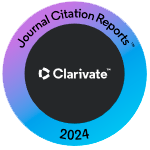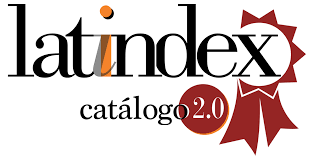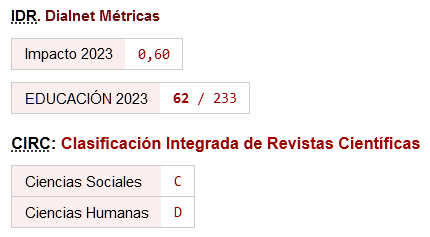Investigation of Lifelong Learning Competencies of Physical Education and Sports Teachers and Preservice Teachers in Turkey in Times of COVID-19 Pandemic
DOI:
https://doi.org/10.46661/ijeri.6072Keywords:
Physical education teacher,, preservice teacher, student, lifelong learning competence, COVID-19 pandemicAbstract
During the COVID-19 pandemic, 76 physical education and sports teachers and 74 preservice teachers voluntarily participated in this study, which investigated the Lifelong Learning competencies of Physical Education and Sports Teachers and Physical Education and Sports Teaching Students. Data were collected with the Lifelong Learning Competence (LLC) scale. According to the results of the research, it was determined that the average scores of the participants from the LLC scale were high. There is a statistically significant difference in favor of physical education teachers between the LLC total score of teachers and students and the sub-dimensions of the scale. In terms of the age variable, a statistically significant difference was found between the LLC total score and the sub-dimensions of the scale in favor of the age of 34 and above. According to the results of the correlation analysis between age and LLC sub-dimensions, a positive relationship was found between age and total score, self-management, learning to learn, initiative and entrepreneurship, and a positive relationship between acquiring information and decision-making. Although it is difficult to make a causal inference because the current research was designed in a cross-sectional pattern, lifelong learning competence in the current research group increases with age in the COVID-19 pandemic.
Downloads
References
Alves, R., Lopes, T., & Precioso, J. (2020). Teachers’ well-being in times of Covid-19 pandemic: factors that explain professional well-being. IJERI: International Journal of Educational Research and Innovation, (15), 203–217. https://doi.org/10.46661/ijeri.5120
Aydın, A., Ateş, K. (2010). Bilgi okuryazarlığından yaşam boyu öğrenme’ye. İstanbul: Pasifik Ofset.
Balcı, G. (2007). İlköğretim 5. Sınıf öğrencilerinin sözel matematik problemlerini çözme düzeylerin egöre bilişsel farkındalık becerilerinin incelenmesi. (Yayınlanmamış Yüksek Lisans Tezi). Çukurova Üniversitesi Sosyal Bilimler Enstitüsü, Adana.
Bilasa, P., Taşpınar, M. (2017). Determınatıon of key competences within the scope of lıfelong learnıng: a sıtuatıon analysıs for Turkey. Milli Eğitim, 215, 129-144.
Burgos Videla, C., Vázquez-Cano, E., López-Meneses, E., & Adaos Orrego, R. (2020). DIFPRORET PROJET: Analysis of educational difficulties, proposals and challenges facing the COVID-19. IJERI: International Journal of Educational Research and Innovation, (15), 17–34. https://doi.org/10.46661/ijeri.5145
Büyüköztürk, Ş., Kılıç-Çakmak, E., Akgün, Ö. E., Karadeniz, Ş., Demirel, F. (2012). Bilimsel araştırma yöntemleri. (12. Baskı). Ankara: Pegem.
Chapman, J., Toomey, R., Gaff, J., McGilp, J., Walsh, M., Warren, E. ve Williams, I. (2003). Lifelong learning and teacher education. Canberra: Australian Government. Department of Education Science and Training.
Coşkun, Y., Demirel, M. (2012). Üniversite öğrencilerinin yaşam boyu öğrenme eğilimleri. Hacettepe Üniversitesi Eğitim Fakültesi Dergisi, 42(42), 108-120. Retrieved from https://dergipark.org.tr/en/pub/hunefd/issue/7794/102006
Duman, A. (2005). Türkiye’de yaşam boyu öğrenme siyasalarını oluştur(a)mamanın dayanılmaz hafifliği. F. Saylan ve A. Yıldız (Ed.), Yaşam boyu öğrenme sempozyum kitabı içinde (s. 31-44). Ankara: Ankara Üniversitesi Eğitim Bilimleri Enstitüsü: Pegema Yayıncılık.
Edwards, R., Usher, R. (2008). Atroubled space of possibilities: Lifelong learning and the postmodern. (Eds. P. Sutherland, J Crowter), Lifelong learning: Concept and contexts (58-679). London: Routledge.
European Unıon. (2006). Key Competences for Lifelong Learning, European Communities, Belgium.
Gencel, İ. E. (2013). Öğretmen adaylarının yaşam boyu öğrenme yeterliklerine yönelik algıları. Eğitim ve Bilim, 38(170), 237-251.
Gökyer, N., Türkoğlu, İ. (2018). Üniversite öğrencilerinin yaşam boyu öğrenme eğilimleri. Fırat Üniversitesi Sosyal Bilimler Dergisi, 28(2), 125-136.
Gökyer, N. (2019). Ortaokul öğretmenlerinin yaşam boyu öğrenme eğilimleri. Trakya Üniversitesi Sosyal Bilimler Dergisi, 1 (1), 145-159. DOI: 10.26468/trakyasobed.463102
Güngör, İ. (2006). Öğrenmeyi öğrenme eğitiminin lise 1. Sınıf öğrencilerinin matematik ile Türk dili ve edebiyatı dersleri sınav başarısına etkisi: Kayseri ili örneği. (Yayımlanmamış Yüksek Lisans Tezi). Erciyes Üniversitesi Sosyal Bilimler Enstitüsü, Kayseri.
Hake, B. (2005). Dünden bugüne yaşam boyu öğrenme. F. Sayılan ve A. Yıldız (Yay. Haz.), “Yaşam boyu öğrenme: sempozyum bildirileri ve tartışmalar.” I. Yaşam boyu öğrenme sempozyumu 9-10 Aralık 2004 Ankara içinde (p. 15 - 30). Ankara: Ankara Üniversitesi Eğitim Bilimleri Enstitüsü: Pagem Yayıncılık.
İzci, E., Koç, S. (2012). Öğretmen adaylarının yaşam boyu öğrenmeye ilişkin görüşlerinin değerlendirilmesi. Adıyaman Üniversitesi Sosyal Bilimler Enstitüsü Dergisi, (9), 101-114. DOI: 10.14520/adyusbd.267
Karakuş, C. (2013). Meslek yüksekokulu öğrencilerinin yaşam boyu öğrenme yeterlikleri. Eğitim ve Öğretim Araştırmaları Dergisi, 2(3), 26-35.
Kaya, H. E. (201). Yaşam boyu öğrenme ve küresel dinamikleri. Ankara: Nobel Akademik Yayıncılık.
Kazu, İ. Y. (2016). Öğretmenlerin yaşam boyu öğrenme yeterlikleri. İlköğretim Online, 15(3), 838-854, doi: http://dx.doi.org/10.17051/io.2016.07530
Kirbas, S. (2020). The Views of Physical Education and Sports Teaching Instructors on Education in the COVID-19 Period. Journal of Education and Learning, 9(6), 196-205.
König, J., Jäger-Biela, D. J., & Glutsch, N. (2020). Adapting to online teaching during COVID-19 school closure: teacher education and teacher competence effects among early career teachers in Germany. European Journal of Teacher Education, 43(4), 608-622.
Oducado, R. M., Rabacal, J., Moralista, R., & Tamdang, K. (2020). Perceived Stress Due COVID-19 Pandemic Among Employed Professional Teachers. IJERI: International Journal of Educational Research and Innovation, (15), 305–316. https://doi.org/10.46661/ijeri.5284
Orr, D., Appleton, M., Wallin, M. (2001). Information leteracy and flexible delivery: Creating a conceptual framework and model. The Journal of American Librarianship, 27(6),457-463.
Portillo, J., Garay, U., Tejada, E., & Bilbao, N. (2020). Self-perception of the digital competence of educators during the COVID-19 pandemic: A cross-analysis of different educational stages. Sustainability, 12(23), 10128.
Prensky, M. (2001). Dijital natives, dijital immigrants. On the Horizon, 9(6), 1-6.
https://www.emerald.com/insight/content/doi/10.1108/10748120110424843/full/html
Polat, C., Odabaş, H. (2008, 27-30 March). Bilgi toplumunda yaşam boyu öğrenmenin anahtarı: bilgi okuryazarlığı. In Küreselleşme, Demokratikleşme ve Türkiye Uluslararası Sempozyumu Bildiri Kitabı, Antalya (Turkey). [Conference paper].
Rockman, I. F. (2004). Integration information literacy into the higher education curriculum: Practical models for transformation. San Francisco: John Wiley.
Said, F., Ali, I., & Javed, T. (2020). An Interpretative Phenomenological Analysis of Challenges Faced by the University Teachers in Pakistan Amid Covid-19. IJERI: International Journal of Educational Research and Innovation, (15), 260–272. https://doi.org/10.46661/ijeri.5256
Seçer, İ. (2013). SPSS ve LISREL ile pratik veri analizi, analiz ve raporlaştırma. Ankara: Anı.
Secker, J. (2008). Social software, libraries and distance learners: Literature review. London: University of London.
Şahin, S., Köğce, D., Özpınar, İ., Yenmez, A. (2014). Öğretim elemanlarının 21. yüzyıl öğrenen standartları ve yaşam boyu öğrenmeye ilişkin görüşleri. Dicle Üniversitesi Ziya Gökalp Eğitim Fakültesi Dergisi, (22), 185-213. Retrieved from https://dergipark.org.tr/en/pub/zgefd/issue/47939/606464
Tanu Wijaya, T. (2020). How chinese students learn mathematics during the coronavirus pandemic. IJERI: International Journal of Educational Research and Innovation, (15), 1–16. https://doi.org/10.46661/ijeri.4950
Tingaz, E. O. (2021). The psychological impact of COVID-19 pandemic on elite athletes, management strategies and post-pandemic performance expectations: a semi structured interview study. IJERI: International Journal of Educational Research and Innovation, (15), 73-81.
Trubavina, I., Dotsenko, S., Naboka, O., Chaikovskyi, M., & Meshko, H. (2021, March). Developing digital competence of teachers of Humanitarian disciplines in the conditions of COVID-19 quarantine measures. In Journal of Physics: Conference Series (Vol. 1840, No. 1, p. 012052). IOP Publishing.
Tunca, N., Alkın-Şahin, S., Aydın, Ö. (2015). Öğretmen adaylarının yaşam boyu öğrenme eğilimleri. Mersin Üniversitesi Eğitim Fakültesi Dergisi, 11(2). Retrieved from https://dergipark.org.tr/en/pub/mersinefd/issue/17397/181922?publisher=mersin?publisher=mersin
Yaman, F., Yazar, T. (2015). Öğretmenlerin yaşam boyu öğrenme eğilimlerinin incelenmesi (Diyarbakır İli Örneği). Kastamonu Eğitim Dergisi, 23(4), 1553-1566. Retrieved from https://dergipark.org.tr/en/pub/kefdergi/issue/22597/241367
Downloads
Published
How to Cite
Issue
Section
License
Copyright (c) 2022 Kursat Hazar

This work is licensed under a Creative Commons Attribution-NonCommercial-NoDerivatives 4.0 International License.












